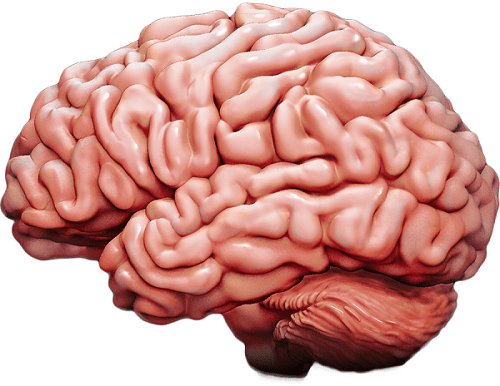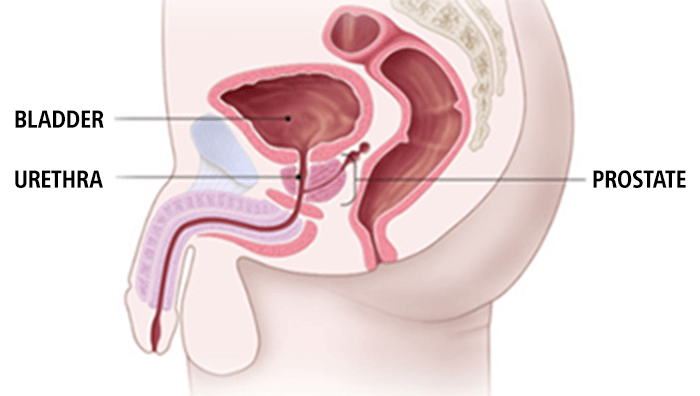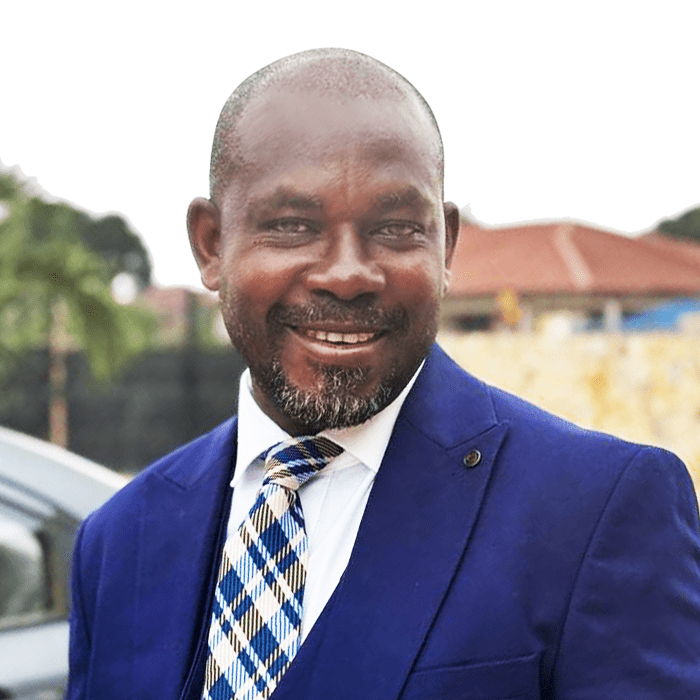Health Essentials
Is there a prescription to reverse aging? -Part 1

The human brain begins to slowly decreasein size at age 25
Your hairline begins to recede, you can no longer keep count of the gray hair, your skin begins to sag, you can no longer fit into your clothes, but you can swear that you weigh the same on the scale.
Things may sometimes get worse; you just cannot remember where you place your keys and your “sweet after meals” is now a tray full of pills and you keep refilling these from your new-found recreational centre, which is your doctor’s office.
You may also belong to the team that wakes up every day with pain in your joints and getting out of bed can set off panic bells.
What if you retired from your job barely a year ago and you are currently in hospital for the second time with a broken arm?
Surely you will never agree with the phrase “age is just a number” because you seem to be “experiencing so many things that never happened to you in the past.”
This morning, I woke up more convinced than ever that we can prevent or reverse many of the changes associated with aging. Certainly, the downward spiral will continue if you do not do something positive to arrest and then reverse it.
These days whenever I spend time together with friends, the conversation will often be interspersed with greying, potbellies and health challenges. Consistently making our health a priority will go a long way to making things much better.
This month of April I have dedicated to discussing aging, its life-changing impact on our lives and what we can do.
I wish I had known these much earlier then I would not have to start a crush programme this week to make up for lost time.
You may be eager to get started too but no matter the state you find yourself in today, do not allow yourself to be sucked in by the “terrible toos” – too much, too hard, too fast, too soon – why?
The answer is simple you may either harm yourself or “burn-out” quickly. Both scenarios mean you will no longer continue with your newfound positive life.
The world is generally living longer but our “health span”, which is the time when we are actually fit and can enjoy life and not just hang onto it, is probably getting shorter.
Is it possible that much of the decline we experience is a result of our mindset and inactions? Maybe “we expect to fall apart so we allow ourselves to fall apart.”
Many of us ignore the “signs of aging” such as easy fatigueability and shortness of breath and instead focus on outward signs such as graying of our hair and a receding hairline; surely these are also important, but I bet it’s what is on the inside that really counts; your heart, your lungs, your brain, your kidneys and all the others that you cannot see.
I wish I could equate this to “don’t mind the body, mind the engine” but that would not be exactly true.
What happens to your brain, heart, lungs, muscle and bones as you keep celebrating birthdays? If you do not know your birthday or you have adopted a “f—ball age” you will still not be able to hide, just get proactive.
The brain
From age 25, the human brain begins to slowly decrease in size and that cannot be good news. Small in this scenario is certainly not better. As the brain shrinks, it becomes less efficient and your ability to reason, comprehend and retain information starts a slow difficult to detect downward ride. Who has seen my car key today, I thought I left it on the table?
What to do
Playing with balls (tennis balls I mean) may help your brain bounce back. Start with juggling three balls at a time. The good news is you don’t even need to get the juggling right; it is the effort at practising a new skill that matters. Remember not to be caught by the terrible toos. I plan to buy three balls today. Solve puzzles, read books and increase your physical activity.
The heart
In your mid-40s, your heart tends to grow smaller (excluding effects of a heart failure or muscle thickening from high blood pressure). This reduction in size means your heart no longer pumps blood as efficiently as it used to. This will force your heart to work harder putting it at risk of injury or disease.
What to do
The more time you spend moving the better. There is no dispute about it though, lace your boots and start moving. Depending on your level of fitness you may need to start slowly and build up momentum.
To be continued…
AS ALWAYS LAUGH OFTEN, ENSURE HYGIENE, WALK AND PRAY EVERYDAY AND REMEMBER IT’S A PRICELESS GIFT TO KNOW YOUR NUMBERS (blood sugar, blood pressure, blood cholesterol, BMI)
Dr. Kojo Cobba Essel
dressel@healthessentialsgh.com
*Dr. Essel is a medical doctor with a keen interest in Lifestyle medicine, he holds an MBA and is ISSA Specialist in exercise therapy, fitness nutrition and corrective exercise. He is the author of the award-winning book, ‘Unravelling The Essentials of Health & Wealth.’
Thought for the week –“A sedentary lifestyle – spending a lot of time seated at a desk, in a car, or in front of a television or computer monitor – increases your risk of death from heart disease even if you EXERCISE. Remember to take 2 minute heart health breaks from your desk or chair.”
Reference:
1. Men’s Health Magazine. May 2012
2. Stephen L. Kopecky M.D. – Cardiovascular Disease Specialist at Mayo Clinic
3. Mayo Clinic-Essential Heart Guide. 2012.
The human brain begins to slowly decreasein size at age 25
By Dr. Kojo Cobba Essel
Health Essentials
The Prostate Has Found Its Voice

The prostate gland, a small but essential organ found only in men, plays a key role in reproductive health. It produces fluid that nourishes, protects, and transports sperm, yet many focus only on its connection to prostate cancer.
Location & Function
- Situated between the bladder and penis, with the rectum behind it.
- The urethra passes through the prostate, carrying urine and semen.
Common Prostate Conditions
1. Prostatitis – Infection of the prostate:
- Symptoms: chills, fever, pus-like urethral discharge, painful urination, groin/testicular pain, painful orgasms, erectile dysfunction.
- Advice: Seek professional help; do not self-medicate.
2. Benign Prostatic Hyperplasia (BPH) – Non-cancerous enlargement of the prostate:
- Symptoms: frequent urination (especially at night), urge incontinence, difficulty starting urination, weak stream, painful urination, blood in urine, terminal dribbling, and in severe cases, inability to urinate.
- BPH can be extremely painful, sometimes compared to labor pains.
3. Prostate Cancer – Common among men, especially black men, often aggressive and with earlier onset:
- Risk Factors: older age, African descent, family history, obesity.
- Symptoms: frequent urination, straining, blood in urine/semen, weak urine flow, new erectile dysfunction; advanced stages may include fatigue, weight loss, and bone pain.
Diagnosis
- Digital rectal examination – checks for irregular or hard areas.
- PSA test, biopsy, ultrasound, CT/MRI/PET scans, bone scan.
Management
- Holistic approaches include watchful waiting, medication, surgery, and radiation (external & brachytherapy).
- Always discuss all options with your healthcare provider.
Risk Reduction Tips
- Regular screening
- Healthy, varied diet rich in fruits and vegetables (carrots, tomatoes, broccoli, kale, cauliflower)
- Maintain a healthy weight
- Exercise at least 5 days a week
Final Advice
- Share this information – the prostate needs support!
- Maintain good hygiene, walk and exercise daily, pray, and know your numbers (blood sugar, blood pressure, cholesterol, BMI).
Thought for the Week:
“There is no magic formula to being happy but making a conscious effort to be happy goes a long way.” – Dr. Kojo Cobba Essel
Dr. Essel invites readers to the La Palm Royal Beach Hotel Wellness Festival on Saturday, November 29, 2025, at 6 a.m., to walk, exercise, network, and share ideas to stay healthy.
Contact: dressel@healthessentialsgh.com
By Dr. Kojo Cobba Essel
Join our WhatsApp Channel now!
https://whatsapp.com/channel/0029VbBElzjInlqHhl1aTU27
Health Essentials
Stop the silent killer: Breaking myths to prevent sudden deaths from high blood pressure

Every week in Ghana, a life is cut short, sometimes in the middle of traffic, sometimes at a desk, sometimes in the quiet of sleep. A father doesn’t come home. A sister doesn’t wake up.
A colleague slumps at work and never gets back up. Families are left asking why and you will hear statements like what happened? Was he sick? I just saw him, he has not shown signs of ailment, what a shock and so on.
Behind many of these sudden tragedies is a quiet, invisible force: high blood pressure, or hypertension. It doesn’t scream for attention. It doesn’t always show symptoms. But it tightens its grip silently on hearts, on brains, on lives.
This is not just a medical issue. It is a human one, it is about behaviour, it is about ignorance and it is about lifestyle. It is the grandmother who never got her blood pressure checked because she felt “fine.”
It is the taxi driver, the statistician, the nurse who ignored his pounding headaches, thinking it was just stress. It is the young lady who was so vibrant at church and no one suspected she could fall and die. Because it shows no symptoms.
The alarming numbers we cannot ignore
The Ghana’s 2023 STEPS Survey on Non-Communicable Diseases conducted by The World Health Organisation, Ghana Health Service and Ghana Statistical Service has revealed findings that should push for action.
According to the report, 21.7 per cent of adults aged 18 to 69 in Ghana are living with high blood pressure. Even more alarming is that 51.1 per cent of those with hypertension are not aware of their condition.
This means that more than half of the people with dangerously high blood pressure are walking around without knowing it until tragedy strikes. That is the real danger of this silent killer.
Literature has shown that hypertension is preventable and manageable. But only if we treat it like the threat, it is. That means regular checkups; that means understanding the risks and that means talking about it openly, urgently, and with compassion.
The deadly power of myths
Why are so many Ghanaians untested or untreated? Is it out of ignorance, or the pervasive myths about hypertension and its treatment?
• Some believe blood pressure medicine “weakens the body” or “shortens life.”
• Some believe blood pressure medicine “weakens the penis and kills sexual drive”
• Others think once you start taking medication, you are “dependent for life.”
• Many say, “I feel fine, so I must be fine.”
These beliefs are not only false, but they are also deadly. The truth, according to the World Health Organisation, is that effective treatment can reduce the risk of stroke by up to 40 per cent and heart attack by 25 per cent. Avoiding treatment does not prevent dependence rather, it accelerates death.
As Dr Patrick Kuma-Aboagye, former Director-General of the Ghana Health Service, has noted, “Hypertension is preventable and treatable, but our biggest battle is misinformation and late detection.”
A national conversation we must have
This is not just a health issue it is a national emergency. Sudden deaths rob families of breadwinners, communities of leaders, and the country of its productivity. In every obituary notice caused by hypertension, there is a story of loss that could have been prevented with a simple blood pressure check and treatment.
Behind every life saved is a moment of awareness, a decision to act, therefore, the media must rise to the challenge.
Radio and television programmes should dedicate regular airtime to demystify hypertension. Newspapers should carry survivor stories, expert interviews, and practical lifestyle advice.
Social media influencers should spread awareness in local languages, reaching young people who assume they are safe.
Public health experts also have a responsibility. Screening must move beyond hospitals into churches, mosques, markets, schools, and workplaces. People should not have to wait for illness to know their BP status.
What we can do together
To stop the silent killer, we need a collective response:
• Check your blood pressure regularly, even if you feel healthy.
• Follow medical advice faithfully if diagnosed because treatment saves lives.
• For healthy lifestyle, eat less salt, reduce alcohol, reduce starchy, fat and oil intake, avoid smoking, and exercise at least 30 minutes daily.
• Encourage one another talk about blood pressure in families, communities, and workplaces.
Conclusion: Silence is killing us
What kills is not just the disease, but the silence, fear, and myths that surround it. The STEPS 2023 report has sounded the alarm: nearly one in five Ghanaian adults has high blood pressure, and more than half don’t even know it.
This is the time for bold conversation, public education, and decisive action. The media, health professionals, policymakers, and ordinary citizens must join forces to expose the myths, spread the facts, and save lives. Let us not wait for another headline.
Let us make blood pressure a national conversation before it becomes a personal tragedy. With awareness, treatment, and collective will, Ghana can stop the silence and stop the sudden deaths from the silent killer.
Written by: Ansah Moses Teye-Akam – Senior Statistician, Sociologist/Scientific Research Organisational Expert.
Email: moses.ansah@ statsghana.gov.gh/ansahmosesteyeakam@ gmail.com.gh Contact: 0244539034 / 0204359034
Join our WhatsApp Channel now!
https://whatsapp.com/channel/0029VbBElzjInlqHhl1aTU27






